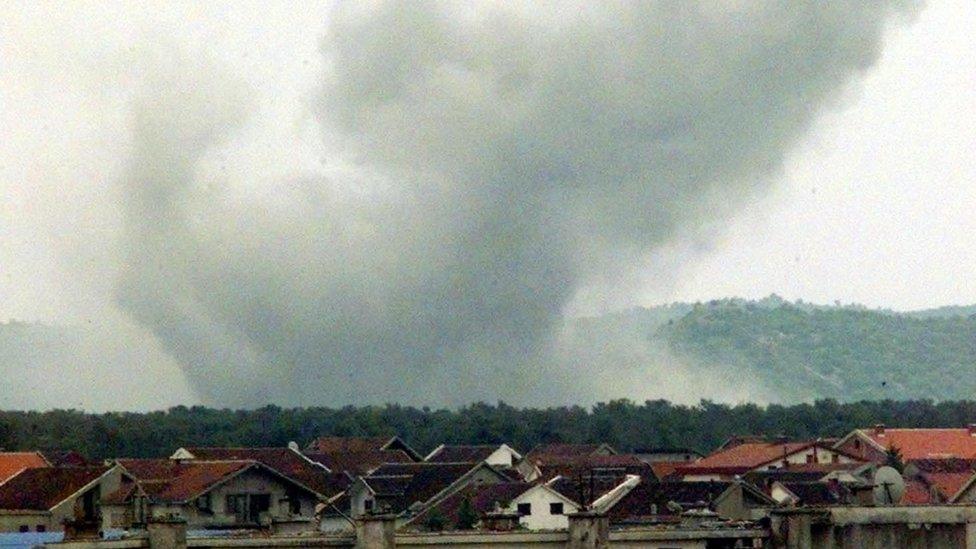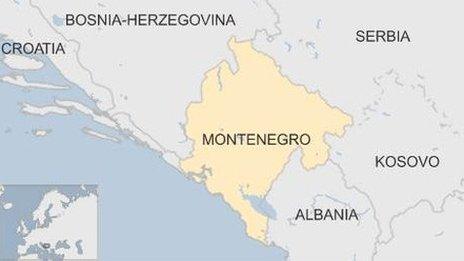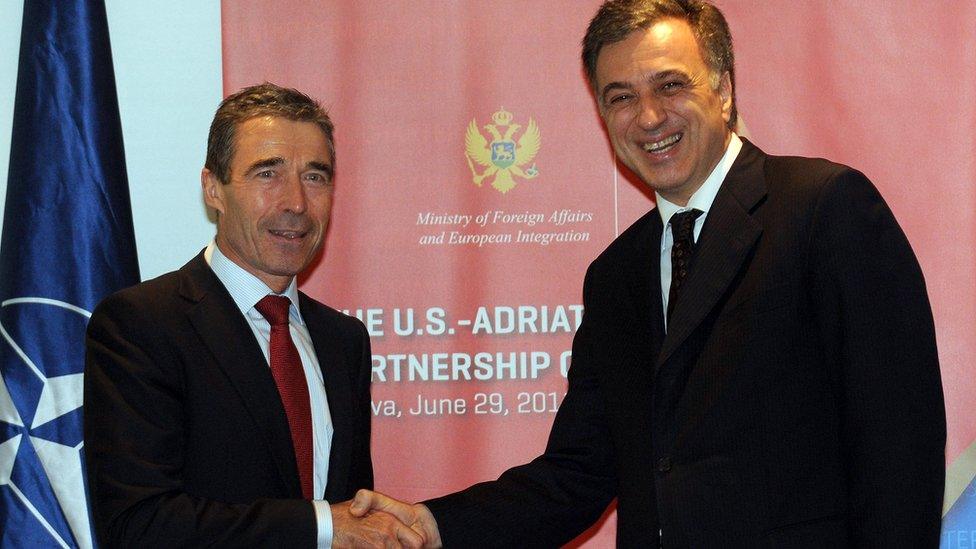Montenegro and Nato: Foes to friends?
- Published

Nato airstrikes in 1999 hit targets like Golubovci airport near the capital, Podgorica
Montenegro has first-hand experience of the power of the Nato alliance. It was on the receiving end of a bombing campaign in 1999 which lasted for two-and-a-half months.
That was only the second time that Nato had carried out a major combat operation - with Montenegro paying the price for being part of Yugoslavia when the policies of Slobodan Milosevic towards Kosovo triggered international intervention.
Now it is on the verge of becoming Nato's 29th member, as accession talks begin. Of the current member states, only Luxembourg and Iceland have smaller populations. But despite its size, Montenegro's membership is far from an uncontroversial matter.
For starters, Russia - a traditional ally - is distinctly unimpressed. Its Deputy Prime Minister, Dmitry Rogozin said Montenegro would "regret" joining Nato. This week Mr Rogozin found himself barred from entering Montenegro.
But diplomatic tit-for-tats are only one part of the story.
Unenthusiastic public
"There are many aspects," says Boris Raonic of Civic Alliance, a human rights organisation based in Montenegro's capital, Podgorica.
"There's the bombing in 1999 - and economic, emotional and internal political aspects. This isn't like Albania or Croatia," he says, referring to the member states which joined Nato most recently.
Around a third of Montenegro's people are ethnic Serbs, who find it particularly hard to countenance joining an alliance which bombed their country without the approval of the UN Security Council.

"Nato bombed our country, savagely destroying residential buildings, hospitals, schools and bridges, killing thousands of people in the bloody acts of naked aggression," says Slaven Radunovic, an opposition MP and president of the parliamentary committee on European integration.
But they are not alone in their objections.
Opinion polls have painted a distinctly unenthusiastic picture - with fewer than half the respondents in favour of Nato membership. The issue has also become tied up with protests against the long-serving, controversial Prime Minister, Milo Djukanovic.
"The key question is: who is leading us to Nato?" says Marko Milacic, the Executive Director of the Movement for Neutrality, which opposes Nato membership.
"It's a small group trying to maintain privilege. We are an autocracy - a facade of democracy. The first step - to make the Nato accession process transparent - is to have a referendum. But that referendum has to be free and fair."
But the opposition to Nato membership goes beyond its association with Montenegro's political leaders. Mr Milacic points out that several European Union member states are not in the alliance and suggests that Montenegro would be more secure if it remained neutral.
"Our movement is for EU integration - and the guarantee of our military neutrality will be the EU. The best model is the Ireland type of neutrality. When Ireland ratified the Lisbon treaty in 2009, the EU guaranteed its neutrality in the treaty."
Shared values
Naturally, proponents feel otherwise. They point out that historically, the Balkans has been an unstable region and a little extra security would do Montenegro no harm. They also suggest that criticism of the government's democratic credentials will be addressed by the Nato accession process.
"Nato will be good for Montenegro - long-lasting stability will be good for economic development and investment," says Vesko Garcevic, the National Coordinator for Nato integration.
"It's a security organisation but it's also about values - a set of values common to all Nato members. That has to be taken seriously - Montenegro should embrace democracy, strong institutions, the rule of law, and the integrity of parliament."
As for the question of a referendum, Mr Garcevic concedes that depends on "political will". But he believes that sceptics will be convinced by an ongoing campaign in conjunction with Nato's public diplomacy division.

Filip Vujanovic (R) was a regular host of Nato's previous Secretary-General, Anders Fogh Rasmussen
"In terms of popular support, we have to do more in the months to come," he says. "Of course the other side is active too - but that's OK, it's democracy."
There is a bigger game being played, one which goes well beyond local concerns in Montenegro. When its accession is ratified, the entire Adriatic coast will consist of Nato member states. Given its traditional influence in the area, this will be much to Russia's chagrin.
It also causes upset in Montenegro - where many people still value ties to their fellow Orthodox Slavs.
"It puts us in an absurd position, where Montenegro is officially against its most valuable historical ally: Russia," says Slaven Radunovic.
But Boris Raonic believes that even if the country joins Nato with little enthusiasm, there may be positive side effects for the development of the country.
"The final division in Montenegro is over Nato - after this there are no big divisions. The most important thing would be that we would finally be with the West - we finally settle this issue and then can move on to concrete things."
- Published14 November 2022